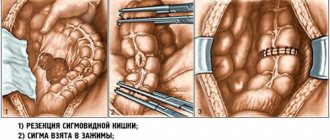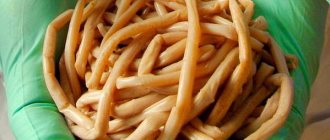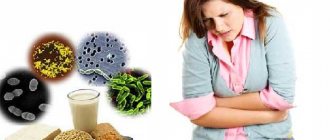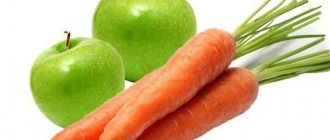Will a vegetable help?
The activity of intestinal motility depends on the content of valuable indigestible fiber in the food consumed . If a person eats refined and processed foods, he consumes very little coarse fiber, which leads to stagnation in the intestines.
Attention : Beets contain more fiber than white cabbage and carrots. This red vegetable is rightfully considered the main weapon in the fight against constipation.
Beneficial properties of beets:
Fiber from beets provides nutrition for beneficial gut bacteria. Healthy “well-fed” microflora promotes better absorption of all nutrients from food and the rapid passage of masses through the digestive organs.- Fiber also stimulates the active work of the intestinal muscles and restores peristalsis.
- The vegetable contains 88% water. Taking enough liquid with food prevents the hardening of stool and has a beneficial effect on the intestinal microflora (we talked in detail about whether you should worry if the stool from beets changes color and becomes red or black, we talked about here).
Beets are useful not only for constipation . Regular consumption of vegetables strengthens the immune system, cardiovascular system, improves liver condition, and promotes the complete absorption of vitamins from food.
When asked which root vegetable is healthier, raw or boiled, we can answer that it is equally useful as a medicine in any form. This is explained by the fact that the valuable substances in beets are not destroyed by high temperature. However, there are some nuances:
- It is recommended to consume the vegetable raw if the cause of constipation is liver problems. Betaine, which is part of beets, cleanses the liver ducts and stimulates its work (you can find out how eating beets affects liver function, as well as see effective folk recipes here).
- Boiled beets, in turn, have a more delicate effect on the mucous membranes of the stomach and intestines. During heat treatment, coarse fibers are saturated with moisture and work softly, but no less effectively. Experts advise boiling the root vegetable before consumption if the patient has problems with the gastrointestinal tract.
What restrictions should you be aware of?
The high concentration of nutrients in beets makes them unsuitable for some people. To avoid problems when treating constipation with boiled or raw beets, you need to remember the following restrictions:
- Infants may have allergic reactions to beets, so it is better to choose another remedy.
- Beets contain a lot of oxalic acid, so they are not suitable for gastritis, ulcers or urolithiasis.
- Due to the high concentration of iron, the absorption of calcium is impaired. With osteoporosis, beets are not suitable for constipation.
- The root vegetable contains a lot of sugar, so this remedy is also not recommended for diabetics.
- Beets are very weak, so if constipation is often replaced by diarrhea, you should not treat yourself with this vegetable.
In general, gastroenterologists recommend beets to their patients, from the age of one year to the elderly. The main thing when using it is to follow the recommendations given above.
The benefits and harms of such treatment
As a cure for constipation, red root vegetables have undeniable benefits for both your health and your wallet.:
- beets are of absolutely natural origin, so the liver will not suffer from this medicine;
- the vegetable is cheap and available in stores all year round;
- beets are gentle, but at the same time very effective;
- contains vitamins, antioxidants, and minerals.
Beets can only be harmful if they are consumed contrary to contraindications.
We talked in detail about the medicinal properties of beets here, and from this article you will learn about the chemical composition of the red root vegetable, as well as how it is beneficial and harmful to human health.
Strengthens or weakens?
The laxative properties of the root vegetable are due to its composition.
The vegetable contains betaine, fiber, oxalic, malic and citric acid, as well as significant amounts of potassium, phosphorus, sodium, chlorine, calcium and other minerals.
Beets are also rich in B vitamins, vitamin C, A, E, PP, iron, zinc, manganese, selenium and copper.
Contraindications
Beetroot is a natural medicine, but even it has limitations in its use . For example, boiled beets should not be consumed if you have diabetes or allergies. Contraindications to treatment with raw beet juice:
- stomach ulcer;
- duodenal ulcer (we talked about whether people with stomach and duodenal ulcers can eat beets in this article);
- urolithiasis and cholelithiasis (read about how to use beets for cholelithiasis so as not to harm the body here).
Important : For these diseases, you should also not eat raw beets in large quantities, as they contain a lot of juice. Eating a moderate amount of root vegetables for these diseases is acceptable.
We recommend watching a video about the contraindications of beets:
conclusions
In this article we talked about the benefits of beets for constipation. We looked at dishes prepared using this vegetable. We found out how to use them correctly for children and adults.
Make sure you have no contraindications, choose the appropriate recipe and try to get rid of constipation or prevent its occurrence with the help of this folk remedy. If the expected effect of treatment does not appear, contact your doctor to prescribe more effective therapy.
A very effective remedy for constipation! Helps get rid of constipation forever!
How to take a vegetable as a laxative?
In order for a vegetable to help eliminate congestion in the intestines, it must be consumed correctly.
For adults
There is a simple and effective way to treat constipation with beets , which will not take much time. It is suitable for everyone who is not contraindicated in consuming this vegetable.
To treat constipation, you need to eat 70-100 grams of boiled beets on an empty stomach 20-30 minutes before breakfast. The course of treatment is from 1 to 2 weeks. After getting rid of stagnation in the intestines, you do not need to stop eating this root vegetable. It is advisable to add beets to salads and other dishes 2-3 times a week to prevent constipation.
Raw beet juice drunk on an empty stomach has the same property. However, juice is a concentrated substance with high biological activity . You need to start drinking juice with 1 tbsp. spoons and gradually increasing the portion to 100-150 ml.
We talked in detail about the norm for beet consumption and the dangers of exceeding it in our article.
For children
Children usually do not like to eat vegetables such as beets, carrots, and onions. Therefore, juice cocktails made from various vegetables are ideal for treating children with constipation (the benefits and harms of beet and carrot juice and how to take it can be found here).
- Firstly, concentrated beet juice is quite aggressive for the weak digestive system of children.
- Secondly, the beneficial properties of different vegetables complement each other and make the juice even more valuable.
Also, preparing juice from various vegetables can be turned into an exciting game for your child.
For a medicinal cocktail you will need: cucumber, carrot and beet juice . To make medicine from root vegetables, you need to mix the juices in equal proportions. The final volume is no more than 70 ml; if desired, the finished mixture can be diluted with water.
The medicine must be taken on an empty stomach 30 minutes before breakfast. The course of treatment continues until constipation is completely relieved. If constipation is a common problem in a child, it is necessary to consume such juices for prevention 4-5 times a week, but not on an empty stomach.
With infants everything is more complicated. Constipation in a small child can only be diagnosed by a pediatrician . The course of treatment and medications are also prescribed by a specialist. If the doctor has approved such an approach to treatment as drinking beet juice, this must be done extremely carefully.
Recommendations for treating constipation with beets in infants:
- drinking juice on an empty stomach is excluded;
- the juice should be diluted with water in a ratio of 1:2;
- you need to start using a few drops, gradually increasing the dose to a tablespoon per day;
- the daily dose is divided into several doses;
- If the slightest signs of allergy are detected, drinking beet juice should be stopped.
During pregnancy
During pregnancy, the problem of constipation is very acute, since the new state of the body provokes stagnation in the intestines. In the last stages of pregnancy, the uterus compresses the intestines , which prevents the free passage of food through it.
Beet salad with prunes is ideal for expectant mothers as a natural laxative.
Ingredients:
- 30 grams of prunes;
- 150 grams of beets.
Preparation:
- Rinse the prunes under running water, pour boiling water over them and leave for 1-2 hours, then chop.
- If desired, boil the beets until tender and grate on a coarse grater.
- Mix ingredients and add salt to taste.
Advice : You need to eat this salad every day until complete recovery, then several times a week for prevention. For variety, prunes in the salad can be replaced with an apple, kiwi or boiled carrots.
Medicinal properties
You need to know that beets (in the southern regions of Russia, Ukraine and Belarus they are called beets) will help the intestines cope with constipation and perform preventive actions.
What beneficial functions does beets perform for constipation in the human body:
- It has a preventive effect on the functioning of the thyroid gland and replenishes iodine deficiency.
- In case of iron deficiency, it helps restore the body. This is especially true during pregnancy.
- It has a positive effect on the normalization of liver function with the help of betaine.
- Reduces blood pressure. Recommended for hypertension.
- Helps in removing heavy metals from the body. The accumulation of heavy metal salts in tissues leads to severe poisoning, with irreversible changes.
Buryak is a product rich in fiber, which is necessary to activate the digestion process. Fiber is not digested by gastric juice or other enzymes and leaves the body unchanged, causing an irritating effect on the walls and mucous membranes. This causes the intestines to increase motility. At the same time, the movement of the food bolus through the canal accelerates. The result is a gentle removal of feces from the body naturally without tension or pain. Fiber becomes a breeding ground for beneficial microorganisms of the local microflora. Therefore, eating beets prevents the occurrence of dysbacteriosis.
Dish recipes
Salad with garlic and nuts
An easy to prepare and at the same time very tasty salad.
Ingredients:
- 200 grams of beets;
- 50 grams of walnuts;
- 3 cloves of garlic;
- 1 teaspoon sunflower oil.
Preparation:
- Boil the beets until tender, cool, and grate.
- Chop the nuts randomly with a knife.
- Pass the garlic through a press or finely chop.
- Mix everything and season with sunflower oil and salt.
We recommend watching a video about preparing beet salad with garlic and walnuts:
Baked beets
A very tasty dish that is easy to prepare.
Ingredients:
- 2 medium-sized root vegetables;
- 3 cloves of garlic;
- 3 tbsp. spoons of olive oil;
- 2 sprigs of rosemary;
- 1 tbsp. a spoonful of wine vinegar;
- salt.
Preparation:
- Preheat the oven to 180°C and bake the whole beets in foil until cooked (at least 40 minutes).
- The baked beets must be removed from the foil, peeled and cut into medium pieces.
This method of preparing vegetables allows you to preserve all its beneficial properties and taste. If desired, the finished dish can be seasoned with olive oil and a little salt.
We recommend watching a video about cooking baked beets:










